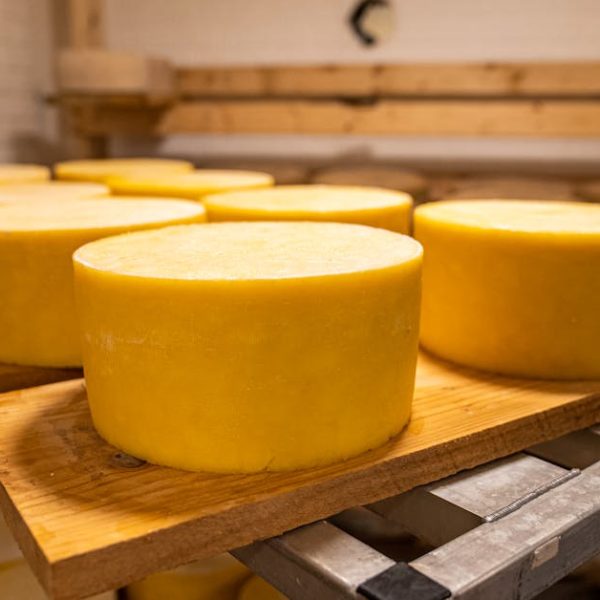Ricotta cheese, a key ingredient in many delectable Italian dishes, is known for its distinctively fresh and mildly sweet flavour. With its creamy texture and versatility, it’s no wonder that ricotta cheese enthusiasts want to learn how to maximize its shelf life. This article will guide you through various techniques to extend its freshness, recognize spoilage signs, and understand the role of storage conditions in its longevity.
Understanding Ricotta Cheese and Its Shelf Life
Ricotta cheese is a pure delight, but it can be rather fickle when it comes to maintaining its best quality over time. A myriad of factors determines the shelf life of Ricotta cheese, including the freshness of the milk used, its packaging, and the storage conditions.
- Dairy freshness: Freshly made ricotta with recent milk lasts longer. Older dairy products can significantly shorten its shelf life.
- Packaging: The packaging type and the presence of preservatives can also influence the shelf life. Packaged store-bought ricotta cheese often comes with preservatives that help maintain freshness, while homemade kinds may lack these additives.
- Storage Conditions: How and where you store your ricotta cheese plays a vital role in prolonging its shelf life. Temperature, humidity, and light are all determinants.
It’s also important to discern the difference between store-bought and homemade ricotta cheese. Typically, store-bought ricotta can stay fresh for about two weeks after opening, while homemade ricotta will last around one week if stored properly. This difference is largely due to the inclusion of preservatives in commercial products.
Proper Storage of Ricotta Cheese
Storing ricotta cheese right is the first step to ensuring its quality and extending its shelf life. Here are some crucial Do’s and Don’ts to bear in mind:
Do:
- Seal the ricotta cheese in an airtight container or tight plastic wrap. Air exposure can deteriorate its quality.
- Store at the back of the fridge where temperature is most stable.
Don’t:
- Leave ricotta cheese at room temperature for more than two hours.
- Freeze ricotta cheese that you intend to use in recipes where texture matters as freezing can alter its consistency.
Adopting these best practices can significantly affect how long your cheese remains fresh and delightful.
Recognizing Spoiled Ricotta Cheese
It’s essential to know the telltale signs of ricotta cheese going bad, as consuming spoiled cheese can pose health risks. Understanding what your cheese should look, smell, and taste like when fresh, can help you readily spot the signs of spoilage.
- Visual cues: Ricotta cheese is usually white to off-white. Signs of mould, yellowing, or discoloration are indications of spoilage.
- Smell test: Ricotta’s smell is fresh and milky. An unpleasant, sour, or strong smell is a warning sign.
- Taste test: Fresh ricotta has a mildly sweet taste. If it tastes sour, it’s time to toss it.
Though much can be done to extend ricotta cheese’s shelf life, knowing when to let go is equally essential for your health.
Making the Most of Ricotta Cheese Shelf Life
Even with a finite shelf life, you can implement several techniques to keep your ricotta cheese fresh for an extended period. This tends to contribute to the overall flavor, making each culinary expedition a delight.
- Use clean utensils: Whenever you scoop out some cheese, use a clean spoon. Reintroducing a used spoon can introduce bacteria that speed up spoilage.
- Keep cheese away from strong-smelling items: Cheese has a tendency to absorb the scent of the foods around it. It’s best to store it away from items with a strong odor to maintain its distinctive flavor.
- Avoid mixing fresh and old cheese: Combining new and old ricotta cheese can reduce the shelf life of the new lot. Always use the older cheese first.
The Impact of Storage Conditions on the Shelf Life of Ricotta Cheese
Like all dairy products, ricotta cheese degrades under suboptimal conditions. The main factors that influence shelf life are temperature, humidity, and light.
- Temperature: Ricotta cheese should be stored at a temperature between 1°C and 4°C, well within the fridge’s usual range. Higher temperatures may cause it to spoil faster.
- Humidity: Ricotta needs a balance- high humidity can encourage bacterial growth, while low humidity can cause it to dry out and harden. An airtight container helps manage humidity levels.
- Light: Constant exposure to light can degrade the quality of ricotta cheese. The back of your fridge, where it’s dark and cool, is an ideal place to store it.
Just as a reference, observe the comparative shelf life of ricotta cheese under different storage conditions below:
| Storage Condition | Approx. Shelf Life |
|---|---|
| Refrigerated (1°C – 4°C) | 1-2 Weeks |
| Frozen (-18°C) | Up to 2 Months |
| Room Temperature (20°C – 25°C) | Not Recommended |
With an understanding of how to store, maintain, and identify fresh ricotta cheese, you can surely make the most of its deliciousness for longer periods. Here’s to many more delightful ricotta-infused meals!
Key Takeaway:
- Ricotta cheese’s shelf life is influenced by various factors such as dairy freshness, packaging, and storage conditions.
- The shelf life of store-bought ricotta tends to be longer than homemade ricotta because of the inclusion of preservatives in commercial products.
- Proper storage, including sealing the cheese in an air-tight container and refrigerating it, significantly boost its shelf life.
- Recognizing signs of spoilage, such as visual discoloration, unpleasant smell and sour taste is crucial to prevent health risks.
- Techniques like using clean utensils and avoiding the mixing of old and fresh cheese can keep the cheese fresh for longer.
- The shelf life of Ricotta cheese is impacted by storage conditions such as temperature, humidity, and light.
Navigating the art of extending ricotta cheese shelf life can be simple once you understand the critical factors at play. With the right storage practices, attention to unusual changes, and knowledge of how to preserve its natural freshness, you’ll be enjoying your ricotta cheese for longer periods. Remember, it’s all about striking a balance between attaining the optimal conditions while preserving its delectable flavor and texture.
FAQs
Q: What type of ricotta cheese is best for long-term storage – store-bought or homemade?
A: Store-bought ricotta cheese usually contains preservatives which extend its shelf life, making it a better choice for long-term storage compared to homemade ricotta.
Q: Can I freeze ricotta cheese to extend its shelf life?
A: Yes, you can freeze ricotta cheese to extend its shelf life. However, remember that freezing can alter the texture of the cheese, potentially affecting recipes where texture is crucial.
Q: What is the best temperature to store ricotta cheese?
A: The optimal temperature to store ricotta cheese is between 1°C and 4°C, which is typically within the temperature range of most refrigerators.
Q: Can I mix fresh and old ricotta cheese in the same container?
A: It’s best not to mix fresh and old ricotta cheese in the same container. Doing so can reduce the shelf life of the fresh cheese. Always use the older cheese first.
Q: Is it safe to consume ricotta cheese left at room temperature for more than two hours?
A: It’s not advisable to consume ricotta cheese that has been left at room temperature for more than two hours. The warm temperature could support the growth of harmful bacteria that may lead to foodborne illnesses.
We encourage you to share this article with fellow ricotta-lovers and don’t forget to explore other insightful posts on our site. Happy cheese handling!





